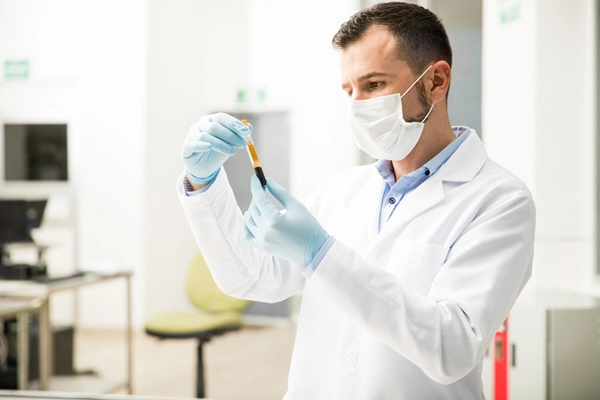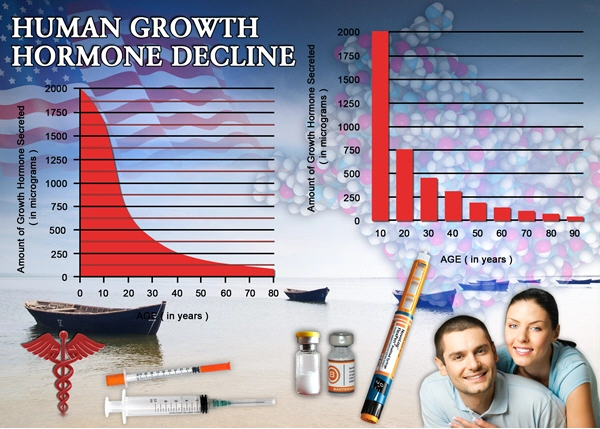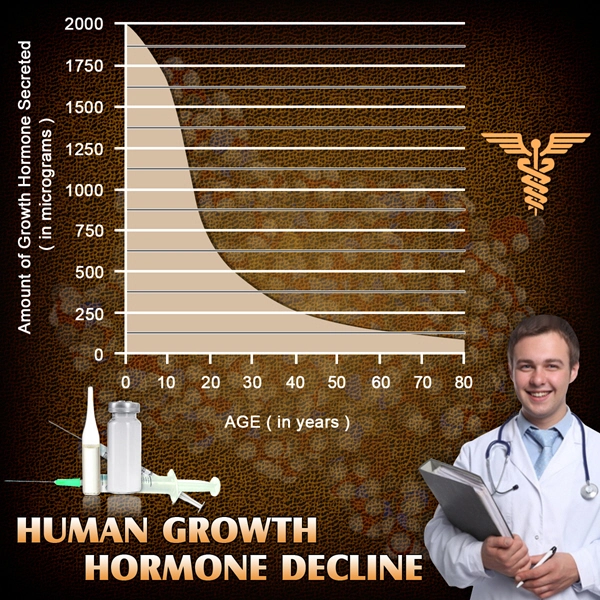Introduction
Testosterone replacement therapy (TRT) has become a widely utilized treatment for hypogonadism in men. However, the safety of such therapies in individuals with autoimmune disorders remains a critical area of research. Fortesta, a topical testosterone gel, has been increasingly prescribed, but its long-term effects on the immune system, particularly in patients with autoimmune conditions, warrant thorough investigation. This article presents the findings of a three-year immunological study focused on the safety of Fortesta in American males with autoimmune disorders.
Study Design and Methodology
This prospective, observational study was conducted over three years, involving 150 American males diagnosed with various autoimmune disorders, including rheumatoid arthritis, type 1 diabetes, and multiple sclerosis, who were prescribed Fortesta for hypogonadism. The primary objective was to assess the immunological safety of Fortesta, monitoring for any exacerbation of autoimmune symptoms or development of new autoimmune conditions. Participants underwent regular blood tests to measure testosterone levels, autoimmune markers, and inflammatory cytokines. Additionally, clinical assessments were performed to evaluate any changes in autoimmune disease activity.
Results: Immunological Safety
Over the three-year period, the study found no significant increase in autoimmune disease activity among participants using Fortesta. Autoimmune markers, such as anti-nuclear antibodies (ANA) and rheumatoid factor (RF), remained stable, with no notable fluctuations that could be attributed to the use of the testosterone gel. Inflammatory cytokines, including interleukin-6 (IL-6) and tumor necrosis factor-alpha (TNF-α), also showed no significant changes, suggesting that Fortesta did not provoke an inflammatory response in this cohort.
Clinical Observations and Patient Outcomes
Clinically, the majority of participants reported stable or improved symptoms of their autoimmune conditions. A small subset of patients experienced minor skin irritation at the application site of Fortesta, but this was not associated with any systemic autoimmune flare-ups. Importantly, no new autoimmune disorders were diagnosed during the study period, further supporting the safety of Fortesta in this population.
Testosterone Levels and Efficacy
Throughout the study, testosterone levels were maintained within the therapeutic range for all participants, indicating effective absorption and utilization of Fortesta. This consistency in testosterone levels underscores the reliability of the gel as a TRT option, even in the presence of autoimmune conditions.
Discussion: Implications for Clinical Practice
The findings of this study provide reassuring evidence regarding the safety of Fortesta in American males with autoimmune disorders. The lack of increased autoimmune activity or new diagnoses suggests that Fortesta can be considered a viable option for TRT in this patient population. Clinicians should, however, remain vigilant for any signs of skin irritation and ensure regular monitoring of testosterone levels to optimize treatment outcomes.
Limitations and Future Research
While this study offers valuable insights, it is not without limitations. The sample size, although sufficient for initial observations, could be expanded in future studies to enhance statistical power. Additionally, longer-term follow-up beyond three years could provide further data on the sustained safety of Fortesta. Future research should also explore the effects of Fortesta in a broader range of autoimmune disorders and consider potential interactions with other medications commonly prescribed for these conditions.
Conclusion
In conclusion, this three-year immunological study supports the safety of Fortesta testosterone gel in American males with autoimmune disorders. The absence of increased autoimmune activity and stable disease markers highlight the potential for Fortesta to be a safe and effective TRT option. As with any medical treatment, ongoing monitoring and patient education are essential to ensure the best possible outcomes. Further research will continue to refine our understanding of testosterone therapy in complex patient populations.

- Fortesta: Enhancing Men's Health with Topical Testosterone Gel [Last Updated On: March 16th, 2025] [Originally Added On: March 16th, 2025]
- Fortesta Gel: Enhancing Sleep Quality in American Men with Low Testosterone [Last Updated On: March 17th, 2025] [Originally Added On: March 17th, 2025]
- Fortesta: Enhancing Weight Management in American Men with Low Testosterone [Last Updated On: March 18th, 2025] [Originally Added On: March 18th, 2025]
- Fortesta Gel: Enhancing Athletic Performance and Vitality in American Men [Last Updated On: March 18th, 2025] [Originally Added On: March 18th, 2025]
- Fortesta: Enhancing Skin Health in American Men Through Testosterone Gel [Last Updated On: March 19th, 2025] [Originally Added On: March 19th, 2025]
- Fortesta Testosterone Gel: Safety, Efficacy, and Usage Guidelines for Hypogonadism Treatment [Last Updated On: March 19th, 2025] [Originally Added On: March 19th, 2025]
- Fortesta: Benefits for Low Testosterone vs. Prostate Health Risks - Monitoring Guidelines [Last Updated On: March 20th, 2025] [Originally Added On: March 20th, 2025]
- Fortesta: Enhancing Male Sexual Health Through Topical Testosterone Therapy [Last Updated On: March 20th, 2025] [Originally Added On: March 20th, 2025]
- Fortesta Gel: Enhancing American Men's Health with Effective Testosterone Replacement [Last Updated On: March 21st, 2025] [Originally Added On: March 21st, 2025]
- Fortesta: Optimizing Testosterone Therapy for American Men with Hypogonadism [Last Updated On: March 22nd, 2025] [Originally Added On: March 22nd, 2025]
- Fortesta: Revolutionizing ED Treatment with Topical Testosterone Gel for American Men [Last Updated On: March 22nd, 2025] [Originally Added On: March 22nd, 2025]
- Fortesta Testosterone Gel: Enhancing Stress Management in American Men [Last Updated On: March 22nd, 2025] [Originally Added On: March 22nd, 2025]
- Fortesta Gel: Enhancing Recovery and Well-being in American Men Post-Surgery [Last Updated On: March 23rd, 2025] [Originally Added On: March 23rd, 2025]
- Fortesta: Enhancing Male Fertility Through Testosterone Gel Therapy in American Men [Last Updated On: March 23rd, 2025] [Originally Added On: March 23rd, 2025]
- Fortesta and Diabetes Management: Key Insights for American Men [Last Updated On: March 23rd, 2025] [Originally Added On: March 23rd, 2025]
- Fortesta Gel: A New Hope for American Men with Chronic Fatigue Syndrome [Last Updated On: March 23rd, 2025] [Originally Added On: March 23rd, 2025]
- Fortesta Gel: A Solution for Andropause in American Men [Last Updated On: March 23rd, 2025] [Originally Added On: March 23rd, 2025]
- Fortesta: A Novel Approach to Pain Management for American Men [Last Updated On: March 24th, 2025] [Originally Added On: March 24th, 2025]
- Fortesta: Effective Topical Gel for Treating Low Testosterone in Men [Last Updated On: March 24th, 2025] [Originally Added On: March 24th, 2025]
- Fortesta: Balancing Cardiovascular Benefits and Risks in American Men [Last Updated On: March 24th, 2025] [Originally Added On: March 24th, 2025]
- Fortesta Testosterone Gel: A New Hope for Osteoporosis in American Men [Last Updated On: March 24th, 2025] [Originally Added On: March 24th, 2025]
- Fortesta Gel: Enhancing Foot Health in American Men Through Testosterone Therapy [Last Updated On: March 24th, 2025] [Originally Added On: March 24th, 2025]
- Fortesta: A Promising Solution for Chronic Pain in American Men [Last Updated On: March 25th, 2025] [Originally Added On: March 25th, 2025]
- Fortesta Gel: Enhancing Muscle Recovery in American Men with Low Testosterone [Last Updated On: March 25th, 2025] [Originally Added On: March 25th, 2025]
- Fortesta: Enhancing Joint Health in American Men Through Testosterone Therapy [Last Updated On: March 25th, 2025] [Originally Added On: March 25th, 2025]
- Fortesta: Revitalizing Vitality in American Men Over 50 with Low Testosterone [Last Updated On: March 25th, 2025] [Originally Added On: March 25th, 2025]
- Fortesta: Boosting Testosterone for Enhanced Anti-Aging in American Men [Last Updated On: March 25th, 2025] [Originally Added On: March 25th, 2025]
- Fortesta: Enhancing Mental Health in Men with Low Testosterone [Last Updated On: March 25th, 2025] [Originally Added On: March 25th, 2025]
- Fortesta: Enhancing Liver Health in American Men Through Testosterone Therapy [Last Updated On: March 25th, 2025] [Originally Added On: March 25th, 2025]
- Fortesta: Enhancing Immune Health in American Men with Testosterone Therapy [Last Updated On: March 26th, 2025] [Originally Added On: March 26th, 2025]
- Fortesta's Impact on Skin Elasticity in American Men: A Comprehensive Review [Last Updated On: March 26th, 2025] [Originally Added On: March 26th, 2025]
- Fortesta: Enhancing Eye Health in American Men Through Testosterone Supplementation [Last Updated On: March 26th, 2025] [Originally Added On: March 26th, 2025]
- Fortesta Gel: Testosterone Treatment and Its Effects on Hair Growth in Men [Last Updated On: March 26th, 2025] [Originally Added On: March 26th, 2025]
- Fortesta Gel: Enhancing Wound Healing in American Men Through Testosterone [Last Updated On: March 26th, 2025] [Originally Added On: March 26th, 2025]
- Fortesta Gel: A Dual Solution for Testosterone Deficiency and Inflammation in Men [Last Updated On: March 26th, 2025] [Originally Added On: March 26th, 2025]
- Fortesta Gel: Combating Muscle Wasting in American Men Effectively [Last Updated On: March 26th, 2025] [Originally Added On: March 26th, 2025]
- Fortesta: Boosting Testosterone and Enhancing Digestive Health in American Men [Last Updated On: March 26th, 2025] [Originally Added On: March 26th, 2025]
- Fortesta: Testosterone Gel's Impact on Respiratory Health in American Men [Last Updated On: March 27th, 2025] [Originally Added On: March 27th, 2025]
- Fortesta Gel: Enhancing Bone Density in American Men with Low Testosterone [Last Updated On: March 27th, 2025] [Originally Added On: March 27th, 2025]
- Fortesta Testosterone Gel: Impacts and Benefits on Nail Health in American Men [Last Updated On: March 27th, 2025] [Originally Added On: March 27th, 2025]
- Fortesta: Impact on Kidney Function in American Men with Low Testosterone [Last Updated On: March 27th, 2025] [Originally Added On: March 27th, 2025]
- Fortesta: Testosterone Gel's Role in Managing Allergies in American Men [Last Updated On: March 27th, 2025] [Originally Added On: March 27th, 2025]
- Fortesta Gel: Enhancing Men's Hair Health and Vitality [Last Updated On: March 28th, 2025] [Originally Added On: March 28th, 2025]
- Fortesta: A Novel Testosterone Gel for Managing Autoimmune Disorders in American Men [Last Updated On: March 28th, 2025] [Originally Added On: March 28th, 2025]
- Fortesta: Enhancing Muscle Building in American Men with Low Testosterone [Last Updated On: March 28th, 2025] [Originally Added On: March 28th, 2025]
- Fortesta: Enhancing Hearing Health in Men with Testosterone Gel [Last Updated On: March 28th, 2025] [Originally Added On: March 28th, 2025]
- Fortesta Gel: Enhancing Blood Sugar Control in American Men with Low Testosterone [Last Updated On: March 28th, 2025] [Originally Added On: March 28th, 2025]
- Fortesta: Treating Low Testosterone and Its Potential Dental Health Benefits [Last Updated On: March 28th, 2025] [Originally Added On: March 28th, 2025]
- Fortesta: Enhancing Joint Flexibility in American Men Through Testosterone Therapy [Last Updated On: March 29th, 2025] [Originally Added On: March 29th, 2025]
- Fortesta: Managing Arthritis in American Men Through Testosterone Therapy [Last Updated On: March 29th, 2025] [Originally Added On: March 29th, 2025]
- Fortesta's Impact on Tendon Health: Insights for American Men Using Testosterone Gel [Last Updated On: March 30th, 2025] [Originally Added On: March 30th, 2025]
- Fortesta: Testosterone Gel's Impact on Skin Aging in American Men [Last Updated On: March 30th, 2025] [Originally Added On: March 30th, 2025]
- Fortesta Gel: Enhancing Recovery from Sports Injuries in American Men [Last Updated On: April 1st, 2025] [Originally Added On: April 1st, 2025]
- Fortesta: Enhancing Ligament Health in Men with Low Testosterone [Last Updated On: April 3rd, 2025] [Originally Added On: April 3rd, 2025]
- Fortesta: Enhancing Cartilage Health in American Men with Testosterone Therapy [Last Updated On: April 5th, 2025] [Originally Added On: April 5th, 2025]
- Fortesta: Enhancing Muscle Tone and Health in American Men with Low Testosterone [Last Updated On: April 5th, 2025] [Originally Added On: April 5th, 2025]
- Fortesta: Enhancing Muscle Strength in Men with Low Testosterone [Last Updated On: April 7th, 2025] [Originally Added On: April 7th, 2025]
- Fortesta: Enhancing Body Composition in American Men Through Testosterone Therapy [Last Updated On: April 8th, 2025] [Originally Added On: April 8th, 2025]
- Fortesta: Enhancing American Men's Physical Endurance and Vitality [Last Updated On: April 8th, 2025] [Originally Added On: April 8th, 2025]
- Fortesta Gel: Enhancing Muscle Coordination and Performance in American Men [Last Updated On: April 9th, 2025] [Originally Added On: April 9th, 2025]
- Fortesta Gel: Boosting Stamina and Vitality in Men with Low Testosterone [Last Updated On: April 9th, 2025] [Originally Added On: April 9th, 2025]
- Fortesta: Enhancing Muscle Function and Health in American Men with Low Testosterone [Last Updated On: April 9th, 2025] [Originally Added On: April 9th, 2025]
- Fortesta: Boosting Muscle Growth and Performance in American Men with Low Testosterone [Last Updated On: April 10th, 2025] [Originally Added On: April 10th, 2025]
- Fortesta Gel: Enhancing Muscle Repair and Performance in American Men [Last Updated On: April 11th, 2025] [Originally Added On: April 11th, 2025]
- Fortesta Testosterone Gel: Enhancing Muscle Recovery and Reducing Soreness in Men [Last Updated On: April 13th, 2025] [Originally Added On: April 13th, 2025]
- Fortesta Gel: Enhancing Muscle Health in Men with Low Testosterone [Last Updated On: April 14th, 2025] [Originally Added On: April 14th, 2025]
- Fortesta: Enhancing Muscle Flexibility in American Men with Testosterone Gel [Last Updated On: April 14th, 2025] [Originally Added On: April 14th, 2025]
- Fortesta: Enhancing Muscle Recovery in American Men with Low Testosterone [Last Updated On: April 15th, 2025] [Originally Added On: April 15th, 2025]
- Fortesta Gel: Enhancing Muscle Power and Vitality in American Men [Last Updated On: April 15th, 2025] [Originally Added On: April 15th, 2025]
- Fortesta: Enhancing Muscle Strength and Endurance in American Men with Low Testosterone [Last Updated On: April 16th, 2025] [Originally Added On: April 16th, 2025]
- Fortesta: Enhancing Muscle Endurance in Men with Low Testosterone [Last Updated On: April 16th, 2025] [Originally Added On: April 16th, 2025]
- Fortesta Gel: Enhancing Muscle Vitality and Well-being in Men with Low Testosterone [Last Updated On: April 16th, 2025] [Originally Added On: April 16th, 2025]
- Fortesta Gel: Boosting Muscle Performance in American Men with Low Testosterone [Last Updated On: April 17th, 2025] [Originally Added On: April 17th, 2025]
- Fortesta Gel: Enhancing Muscle Efficiency in American Men [Last Updated On: April 17th, 2025] [Originally Added On: April 17th, 2025]
- Fortesta: Enhancing Muscle Health in American Men with Low Testosterone [Last Updated On: April 17th, 2025] [Originally Added On: April 17th, 2025]
- Fortesta Gel: Combating Muscle Atrophy and Boosting Testosterone in American Men [Last Updated On: April 18th, 2025] [Originally Added On: April 18th, 2025]
- Fortesta: Enhancing Muscle Resilience in American Men with Testosterone Gel [Last Updated On: April 19th, 2025] [Originally Added On: April 19th, 2025]
- Fortesta: Effective Topical Gel for Managing Low Testosterone in American Males [Last Updated On: April 21st, 2025] [Originally Added On: April 21st, 2025]
- Fortesta Gel: Enhancing Men's Health with Effective Testosterone Supplementation [Last Updated On: April 22nd, 2025] [Originally Added On: April 22nd, 2025]
- Fortesta Gel's Impact on Mood and Depression in Hypogonadal Men: A 5-Year Study [Last Updated On: April 23rd, 2025] [Originally Added On: April 23rd, 2025]



List of USA state clinics - click a flag below for blood testing clinics.
Word Count: 576


















































